Pitirim Sorokin (1889–1968)
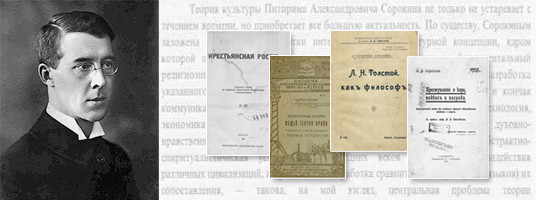
The collection is timed to coincide with the 130th anniversary of the birth of Pitirim Sorokin - a prominent Russian sociologist and culturologist. He was born on February 4, 1889 into a family of a craftsman. In 1914 he graduated from the Faculty of Law at St. Petersburg University and stayed at the university to attain professorship. He was a member of the Socialist Revolutionary Party and was arrested several times. After the February Revolution he was a deputy of the 1st All-Russian Congress of Peasants’ Deputies, A. F. Kerensky’s secretary, member of the Pre-Parliament and the Constituent Assembly. He lectured at Petrograd University, in 1919 he co-founded the Sociology Department, while in 1920 he was offered a professorship. In 1922 he defended the thesis "The System of Sociology." In the autumn of 1922 together with a large group of scientists and cultural workers he was made to leave the country for opposing the Marxist theory and Bolshevik policy. In 1923 he gave lectures at the Russian University in Prague. In 1924 he moved to the United States, where he lectured at the universities in Illinois and Wisconsin. In 1924 he was appointed as professor at the University of Minnesota. In 1930 he became a professor at Harvard University and founded the Sociology Department the same year and the Faculty of Sociology in 1931. He worked there until his death. Pitirim Sorokin passed away on February 10, 1968 in Winchester (Massachusetts, the USA). He published more than 30 books. He became the founder of integral sociology, made a significant contribution to the development of the theory of social mobility. According to the scientist there are three types of “supersystems” in the history that periodically replace each other: ideational, sensate and idealistic. The history itself is a sociocultural process, which is characterized by the dynamics of values. Many of Pitirim Sorokin’s ideas are still relevant today. There are centers in Russia and in the United States, which aim to preserve and study the scientist’s heritage.
The collection includes works by Pitirim Sorokin, as well as modern studies and video materials dedicated to him.
The collection is based on materials provided by the State Public Historical Library, Moscow Regional State Research Library, St. Petersburg State University, Moscow State University and the Russian Institute of Art History.
- Works
... L.N. Tolstoy, as a philosopher
Sorokin, Pitirim Aleksandrovich (1889-1968). ... L.N. Tolstoy, as a philosopher. Moscow: The Mediator, 1914.... Crime and punishment, feat and reward
Sorokin, Pitirim Aleksandrovich (1889-1968). Crime and punishment, feat and reward. St. Petersburg: Ya.G. Dolbyshev, 1914.New ideas in jurisprudence. Sat. 3. Evolution of crime and punishment
New ideas in jurisprudence. St. Petersburg: Education, 1914-1915.
Sat. 3: Evolution of crime and punishment. 1914.New ideas in sociology. Sat. 3. What is progress?
New ideas in sociology. St. Petersburg: Education, 1913-1914.
Sat. 3: What is progress ?. 1914.Сорокин П. А. Обзор теорий и основных проблем прогресса (сканы 126–165)
Eternal Peace and World Unity of Peoples
Sorokin, Pitirim Aleksandrovich (1889-1968). Eternal Peace and World Unity of Nations. Petrograd: Rev. thought, 1917.The causes of war and the path to peace
Sorokin, Pitirim Aleksandrovich (1889 - 1968). Causes of war and the path to peace. Petrograd: the edition of N. N. Karbasnikov, 1917.The problem of social equality
Sorokin, Pitirim Aleksandrovich (1889-1968). The problem of social equality. Petrograd: Revolutionary thought, 1917.Elementary textbook of the general theory of law in connection with the doctrine of the state
Sorokin, Pitirim Aleksandrovich (sociologist, writer; 1889-1968). Elementary textbook of the general theory of law in connection with the doctrine of the state. Yaroslavl: publication of the Yaroslavl Credit Union of Cooperatives, 1919.The system of sociology. T. 2. Social analytics
Sorokin. Pitirim A.Sistema of Sociology. Petrograd: Ed. number of "Kolos", 1920-.
T. 2: Social analytics. 1920.Peasant Russia. 2-3
Peasant Russia. Prague: Peasant Russia, 1922-.
2-3. 1923.Сорокин П. А. То, что часто забывается (сканы 18–35)
Peasant Russia. 4
Peasant Russia. Prague: Peasant Russia, 1922-.
4. 1924.Сорокин П. А. Город и деревня (сканы 7–27)
Peasant Russia. 5-6
Peasant Russia. Prague: Peasant Russia, 1923.
5-6. 1923.Сорокин П. А. Население, класс, партия (сканы 92–105)
- About Pitirim Sorokin
Political ideas of P. A. Sorokin in the Russian period of work
Ionov, Boris Alexandrovich.Political ideas of P. A. Sorokin in the Russian period of work.Moscow, 2012.Culturology P. Sorokin at the turn of the XXI century // Pitirim Sorokin and socio-cultural trends of our time: Materials for the Intern. sci. simp., ded. 110th anniversary of the birth of P.A. Sorokina, Moscow - St. Petersburg, February 4-6. 1999. P.114-115
Culturology P. Sorokin at the turn of the XXI century // Pitirim Sorokin and socio-cultural trends of our time: Materials for the Intern. sci. simp., ded. 110th anniversary of the birth of P.A. Sorokina, Moscow - St. Petersburg, February 4-6. 1999. P.114-115. 1999.P.A. Sorokin and the Present
Kuzivanova, Olga Yuryevna (1964 -). P.A. Sorokin and the Present. St. Petersburg: Presidential Library, 2018.





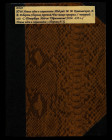


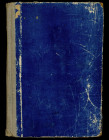





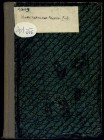

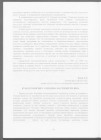

Сорокин П. А. Законы развития наказаний с точки зрения психологической теории права Л. И. Петражицкого (сканы 119–157)